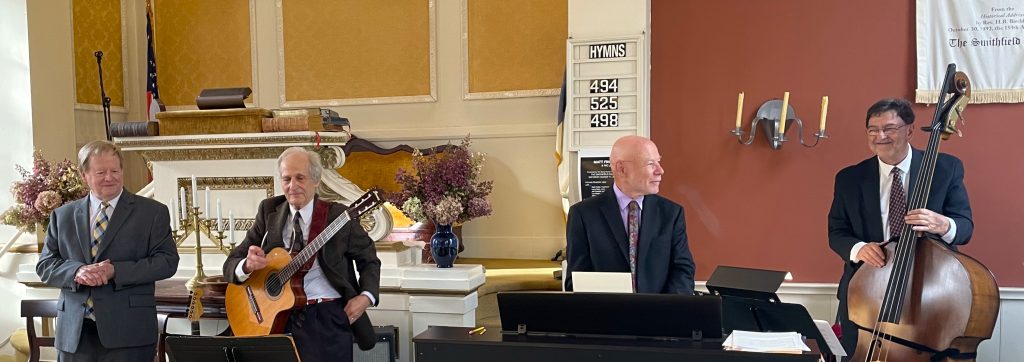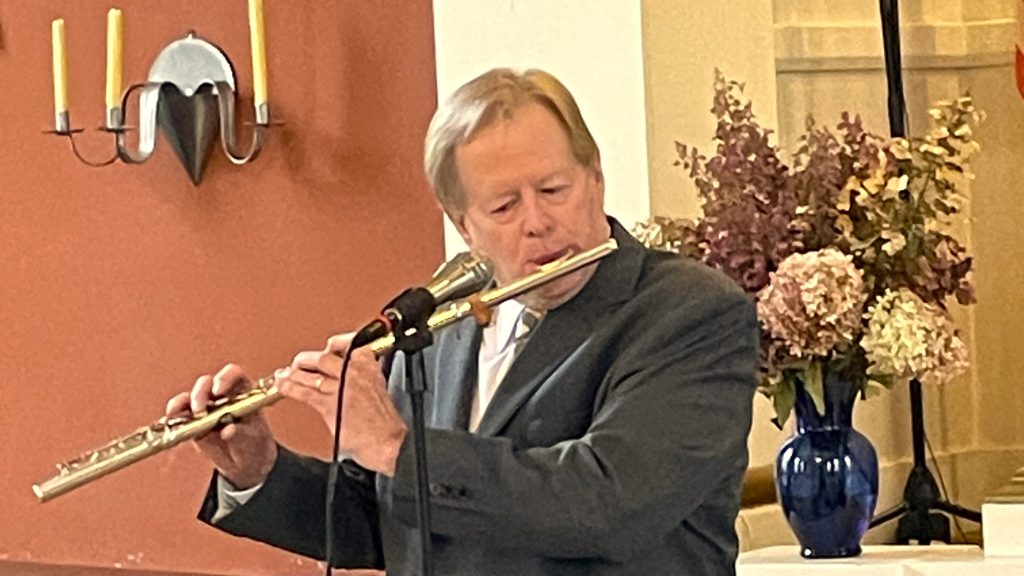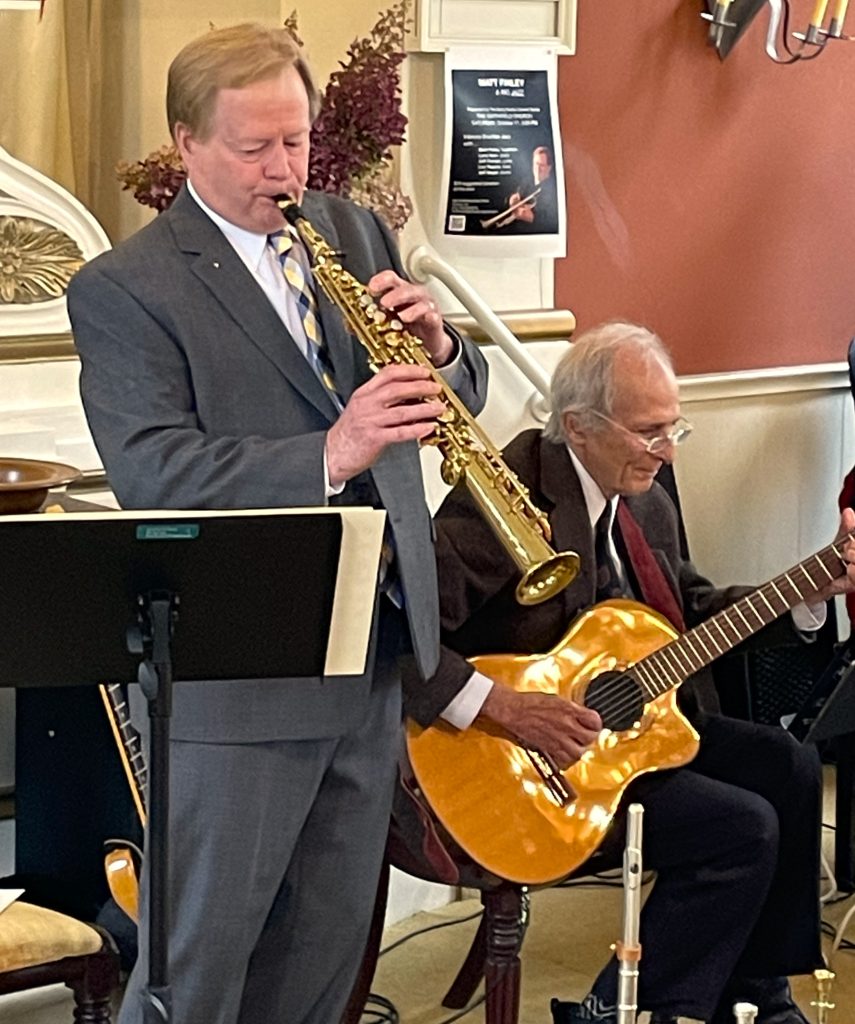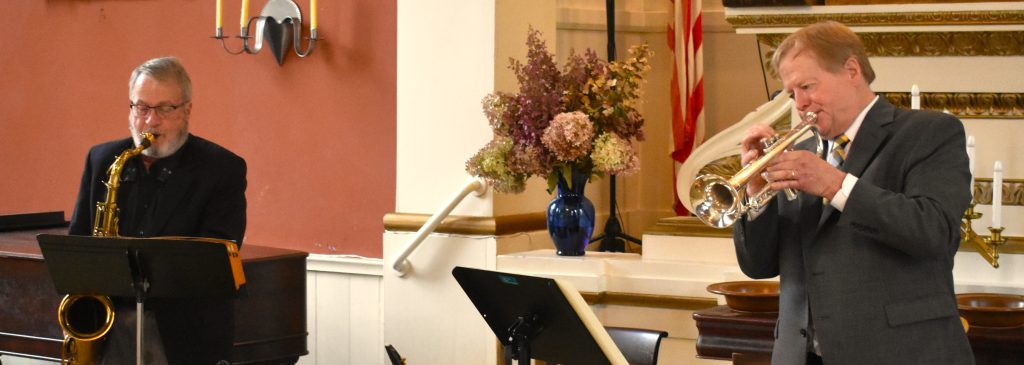
Last Saturday afternoon, Smithfield Church in northwest Amenia hosted Bandleader Matt Finley’s Rio Jazz with the most accomplished jazz musicians in/or surrounding Dutchess County. This was a concert that often featured the original composers playing in their own compositions.
I have penned about 600 music reviews over the past decade; about 95% of those reviews addressed classical music, yet I like jazz as much as classical music; however, I find it more difficult to discuss jazz than classical music. Classical music remains a more heavily sociological event with large auditoriums; that music often remains rooted in sociology, history, movements, and politics, while jazz offers a much more intimate and emotional experience between players and audiences. One might say it is the situation of the epic poet Homer vs. the great Spartan poet Alcman, or Euclid vs. Sappho.
The concert opened with “Nao Me Diga Adeus” (Don’t Tell me Goodbye, or more literally “Don’t tell me go with God”) by Paquito, Sovereign, and Luiz Correa, arranged by Oscar Castrio Neves. Here, Matt Finley excelled with flugelhorn as the four others in the ensemble coalesced around his sound.

Haven’t We Met” by Kenny Rankin) offered a more adult romantic song with Matt on flute with Jeff Ciampa on nylon string electric guitar, yet here amplified by Larry Ham on a brand-new Yamaha Clavinova, with Lou Pappas on bass, and Jeff Siegel on drums. The ultimate expanded brand sound went well beyond the traditional fey, adult charm of the original singer-composer, as it proclaimed mature love.

“Inversions” by composer and guitarist Jeff Ciampa, who has worked with Harry Belafonte and Jon Lucien, offered a series of playful chord inversions with Matt Finley on soprano sax modestly echoing those chord inversions with background support from piano, drums, and bass.
“Threads,” a driving up-tempo straight ahead jazz tune composed by drummer Jeff Siegel, weaved drums and Finley on cornet, then spectacular drumming with Larry Ham on Clavinova piano, then back to trumpet and drums, bass lead from Lou Pappas, then back to lead drums.
“On a Misty Night” (1956) by Tadd Dameron, the definitive arranger and composer of the bop era, featured short solo leads by all five players as they proffered their fantasies of a romantic night.

“Brazilian Coffee” (2023) by Larry Ham, originally recorded as a trio of lead piano, bass, and drums, was enhanced by Matt Finley on flugelhorn. (On the subject of coffee, J.S. Bach, who composed a long cantata on coffee, drank his first cup at 5 am every day while composing music.) As you might suspect, this composition brimmed with energy and excitement as all instruments drank the hot music with enthusiasm.
“Sonic Tonic” (2025) by guitarist Jeff Ciampa was once more defined by lively inversions, which were demanded of all five instruments chugging down the line of wit.
“When She’s Gone,” a Cha-Cha by Matt and Denise Finley, sung by Denise Finley, tells the story of a hopeful wallflower at a dance club in New York City. Denise’s voice was plangent with loneliness, then varied dynamics as if running down and up scales to return home happily.

The concert concluded with a new Finley composition, “Blue Salsa.” Noted saxophonist Bob Shaut showed up from Kingston to play lead, passing the lead to Finley on trumpet, who passed the lead in turn to the other players. Music became an allegory of how community works for the benefit of all, a triumph of intimacy and inventive locality for all present!
P.S. Bob Shaut and Matt Finley will be playing with the Bridge Arts big band based in Kingston at The Falcon jazz club on Sunday, Nov. 23, at 1 pm.